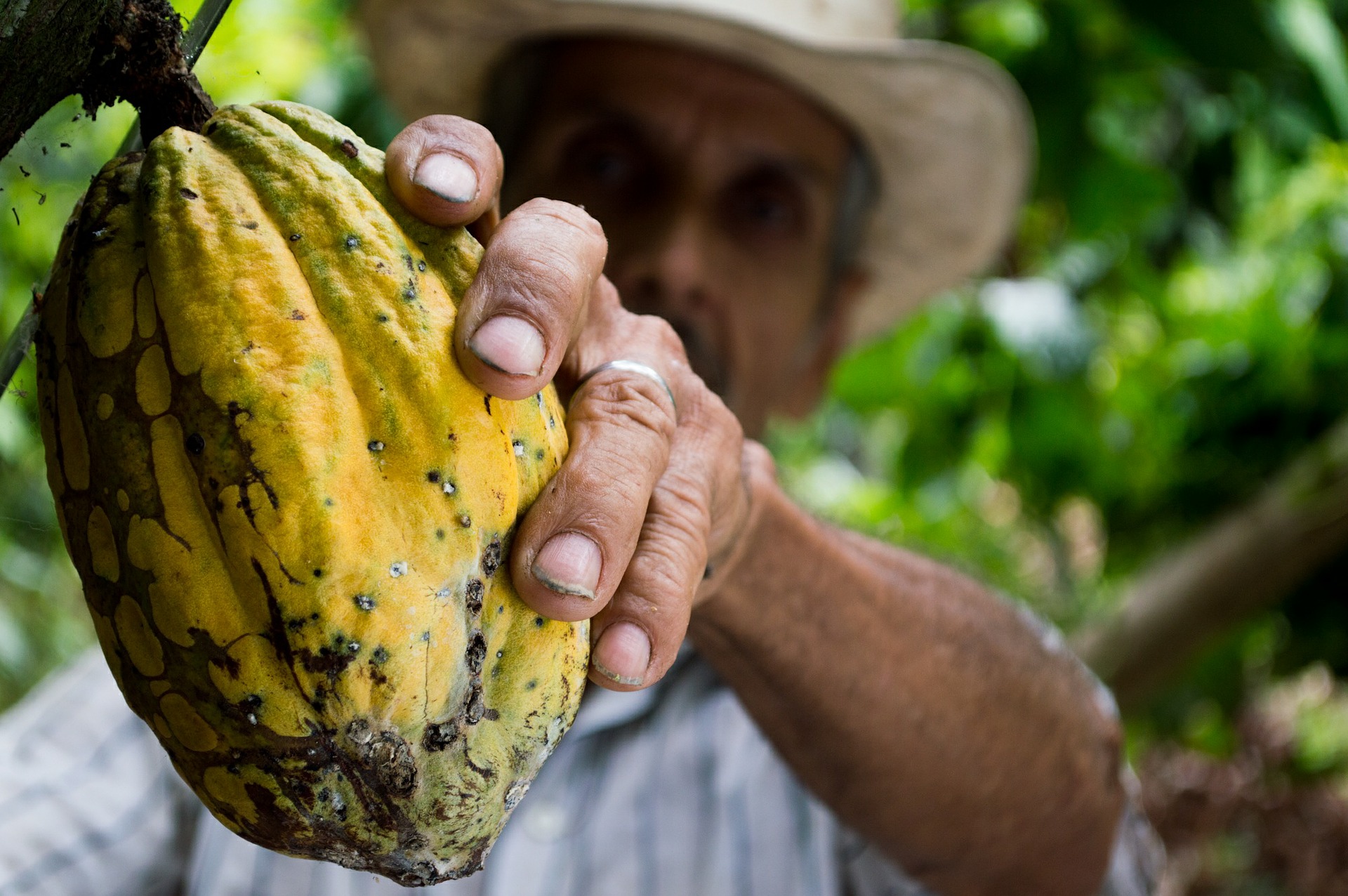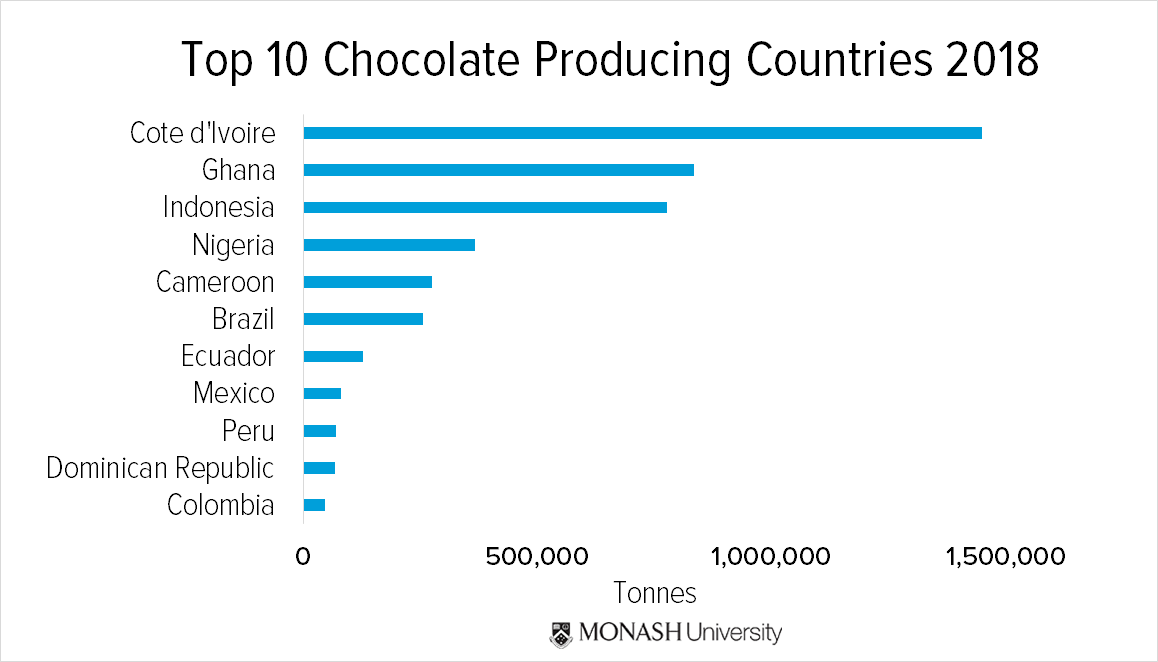Climate change impacting chocolate production
There's a good chance that you, or someone you know, will be enjoying a bit of chocolate over the Easter long weekend. But, did you know that climate change could affect our ability to produce chocolate in the future?
According to some studies, Australians spend more than $200 million on chocolate during the Easter period alone. Globally, the demand for this tasty treat continues to climb each year.
But while chocolate is a central part of Easter celebrations around the world, it may come as a surprise that its production is being threatened by climate change.
Chocolate is produced from the beans that grow on cocoa trees. These plants can only grow in a fairly narrow range of conditions, which makes them vulnerable to changes in the environment.

Cocoa trees prosper in areas that have uniform temperatures, high humidity and abundant rainfall. They also like nitrogen rich soil and protection from the wind.
This narrow set of growing conditions means that most of the world's cocoa is grown within 20 degrees of the equator. Within this zone, a vast majority of the world's cocoa comes out of West Africa, Indonesia and South America.

Unfortunately, climate change is threatening some of these key growing regions. According to the IPCC, rising temperatures and a relative reduction in rainfall could make areas like West Africa less suitable for cocoa production in the future. Changes to the climate are also pushing cocoa-growing regions to higher altitudes in some parts of the world, which can make some crops unsustainable.
So, what does this mean for your easter egg supply during the years ahead?
While researchers continue to study the impact of climate change on chocolate production, work is also being done to adapt cocoa plants to their changing environments. Cocoa farmers, scientists and corporations are exploring new methods to grow cocoa trees, so they can continue to produce one of our favourite treats. Of course prevention is better than a cure, and limiting further climate change is the best way to help make chocolate production sustainable in the years ahead.